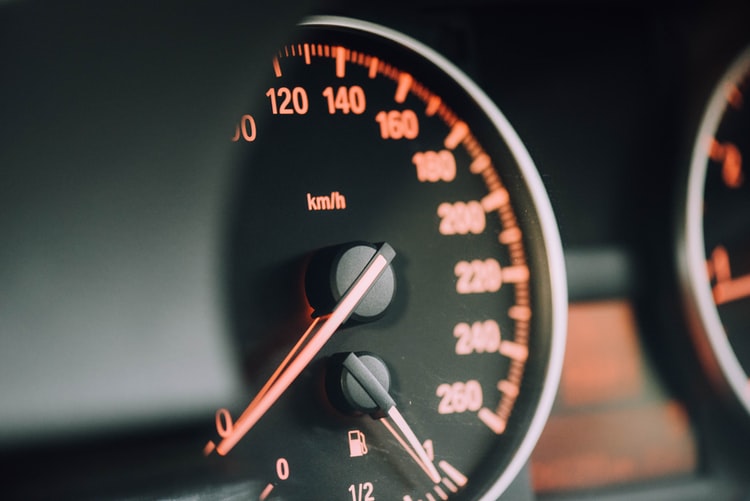Excessive alcohol use and binge drinking is linked to a number of health problems and unintentional injuries. In the United States, 88,000 people die annually from alcohol-related deaths. Many states have problems with binge drinking in their populations. Kentucky is one state in particular that has a problem with the intensity of binge drinking among its citizens and has turned to alcohol treatment facilities as one of the solutions.
According to 2015 data from the Center for Disease Control, Kentucky actually has a lower volume of binge drinking compared to a lot of states, however the severity of the binge drinking episodes is the problem for Kentucky. According to the data, 16.1 percent of adults aged 18 and over participated in binge drinking episodes. However, when those episodes happened, drinkers would consume an average of 7.8 drinks. This means that Kentucky is tied for third in the nation in the level of binge drinking that the population participates in.
Drinking is a problem across the entire country, it leads to tens of thousands of deaths a year and while the alcohol problem may not be the worst in Kentucky, it is still something that residents should be aware of. Understanding how alcohol affects the state and educating yourself on the state laws surrounding alcohol are important steps and could help alleviate the problem and maybe even save a few lives.
Kentucky Alcohol Laws

The alcohol laws in Kentucky may be confusing to some, as there are a number of dry counties that do not allow the sale of any alcoholic beverages. However, there are a lot of exceptions in some of these counties, many consider them to be moist counties as sale of alcohol is acceptable in certain circumstances. For example, in some moist counties, the sale of alcohol is generally considered illegal unless it is done in a winery.
Out of Kentucky’s 120 counties, 39 of them are dry, 32 are wet, and 49 are moist with special circumstances. Some of these counties have been dry even since the end of prohibition in the 1930’s. However, the statuses of alcohol sales in Kentucky counties frequently changes because of local election to expand the sale of alcohol.
But, the laws are more complex than they may seem. For example, if a dry city votes to become wet, a precinct can have a local election to return to being dry. However, if a wet city becomes dry, a precinct may not have another election to return to wet status for three years.
There are a number of other strange Kentucky alcohol laws including:
- Voters cannot buy alcoholic beverages during primary or general elections
- The drinking age is 21 but you can be a bartender at the age of 20
- Consumers can buy a bottle of wine in a drug store but not a supermarket
- Grocery stores have to have separate entrance and shop to sell wine or liquor
While there are a number of off-the-wall laws when it comes to alcohol sales in the state, the penalties for alcohol-related crimes are serious.
Public Drinking or Intoxication
It is illegal in Kentucky to be in a public place and be under the influence of alcohol to the point where the person intoxicated may cause disruption for other people in the area, or endanger himself, herself, other people, or property. This law also applies for people drinking an alcoholic beverage in a public place.
The penalties for public intoxication include:
- First or second offense: minimum $25 fine
- Third or subsequent offense: fine between $25 and $100 and/or five to 90 days in jail
On the third or subsequent offense, alcohol or substance abuse treatment is sometimes required.
Driving Under the Influence
The abbreviations DUI and DWI are used interchangeably to refer to drivers who are under the influence of any substance which can impair driving ability. These substances include well known ones such as alcohol, cocaine, and methamphetamine but can also include prescription drugs and inhalants such as gasoline or glue.
Driving Under the Influence can lead to serious legal penalties, especially for repeat offenders. The penalties for DUI within a 10 year period are:
- First offense: 90 days of alcohol or substance abuse program and a 30 to 120 day license suspension
- Second offense: one year of alcohol or substance abuse program and a 12 to 18 month license suspension
- Third offense: one year of alcohol or substance abuse program and a 24 to 36 month license suspension
- Fourth offense: one year of alcohol or substance abuse program and a 60 month license suspension
Other circumstances can also change the charge to an aggravated DUI which carry higher fines and jail time. Aggravated DUI charges includes things like having a passenger under 12 years old, extreme intoxication, driving the wrong way, and more.
Implied Consent Laws
The implied consent laws in Kentucky state that anyone operating a vehicle is giving consent to a blood, breath, urine or combination of tests in order to determine if the driver is impaired.
However, if a driver refuses the test their license can immediately be suspended. The length of suspension changes depending on the number of refusals:
- First offense: 30 to 120 days
- Second offense: one year to 18 months
- Third offense: two to three years
- Fourth offense or subsequent: five years
Open Container Law
Open container laws are defined as possessing an open container of an alcoholic beverage in the passenger area of a motor vehicle when it’s located on a public highway. A container is open if there is a can or bottle that contains any amount of alcohol that has a broken seal. The passenger area is the area that is designated for the driver and passengers to sit, any area that is readily accessible to the driver or passengers.
The penalty for having an open container is a fine between $35 and $100.
Alcohol and Kentucky
As mentioned earlier in the article, while Kentucky does not have a high binge drinking rate, which may be due to the large number of dry counties, they have a severe drinking rate which means that when Kentuckians do binge drink, they do drink a lot. Along with this, there are a number of other issues the state deals with when it comes to alcohol.
Underage Drinking
According to the Center for Disease Control and Prevention, in 2017, 30 percent of high school students drank some amount of alcohol, while 14 percent binge drink. Underage drinking is a serious problem as it can lead to many developmental health risks and not to mention the problematic situations it can lead to. According to the CDC, youth who drink alcohol are more likely to experience:
- Problems at school like failing grades and higher absence rates
- Unwanted, unplanned, and/or unprotected sexual activity
- Social problems such as fighting or not participating in youth activities
- Alcohol-related car crashes
- Physical and sexual assault
- Disruption of normal growth and sexual development
- Higher risk of suicide and homicide
However, CDC data from 1991 to 2017 shows that the percentages of people who use and abuse alcohol is on the decline. Luckily for the state, Kentucky has a slightly lower rate of underage drinking than the national rate. In 2015, 28 percent of Kentucky high school students admitted to drinking some alcohol while 18 percent admitted to binge drinking.
Louisville
According to a survey done by 24/7 Wall Street, the “drunkest city” in Kentucky is Louisville. While 16 percent of adults in the state participate in binge or heavy drinking, 17.6 percent of Louisville residents are binge drinkers. Alcohol is one behavior that can have a major effect on health and this is compounded by other unhealthy habits.
Along with alcohol consumption, Louisville residents are more likely to smoke and less likely to be physical active than the typical American. Because of this, adults in Louisville are less likely to be in good or excellent health than the typical American.
Health Risks of Alcohol
While drinking in moderation can be okay, the best method to avoiding alcohol-related problems would be to not drink at all. Alcohol can lead to a number of health problems, especially if done in excess. Some long-term health risks of alcohol include the development of chronic disease and other problems. Some health problems include:
- High blood pressure and heart disease
- Stroke
- Liver disease
- Learning and memory problems
- Mental health problems, including depression and anxiety
Alcohol abuse can also lead to a number of cancers as alcohol affects most of the organs in the body. According to the National Cancer Institute, an estimated 3.5 percent of all cancer deaths in the United States were alcohol related. There are clear patterns that have emerged between alcohol consumption and the development of many cancers including:
- Oral cancer
- Esophageal cancer
- Liver cancer
- Breast cancer
- Colon cancer
Drunk Driving in Kentucky
Another alcohol law that is enforced is the prevention of drunk driving, which is another major issue in Kentucky. According to the Center for Disease Control and Prevention, from 2003 to 2012, there were 2,041 people killed in crashes involving a drunk driver. In 2012, the death rates from drunk driving was four people per 100,000, higher than the national average of 3.3. Also, 1.5 percent of adults in the state reported driving after drinking to much in a one month period.
There are strategies that Kentucky has implemented to try to crack down on drunk driving in the state.
Sobriety Checkpoints
Sobriety checkpoints are used by law enforcement to stop vehicles at specific, highly visible locations. It allows the police to stop all or a certain portion of drivers. Officers may elect to perform sobriety tests and breathalyzer tests if they have reason to suspect that a driver is intoxicated or impaired.
Ignition Locks
Ignition interlocks are installed in cars to measure the alcohol on the driver’s breath. Normally, these are installed in cars owned by people who have been found guilty of an alcohol-related offense such as a DUI. Interlocks will keep the car from starting if the driver has a BAC above a certain level, normally 0.02 percent. They are highly effective at preventing repeat offenses while installed.
Personal Tips for Avoiding DUIs
Along with the state, there are some things that each resident can do to help solve the problem of drunk driving in Kentucky.
The most obvious tip for avoiding DUIs is simple, don’t drive after you’ve been drinking. Some suggestions for people to help them do this include having a designated driver, using taxi services or having other driving services like Lyft or Uber on your phone, leaving your car keys at home, and knowing your limits.
While Kentucky may be doing better than other states in some regards when it comes to binge drinking and other alcohol-related issues. They still have problems that need to be addressed and taken seriously.
The alcohol laws that Kentucky has in place are good for discouraging alcohol abuse, but there is still more work that needs to be done to crack down on these problems, alcohol treatment programs are one option. Drug and alcohol treatment programs can be effective in detoxing the body and helping patients remain sober through education and therapeutic efforts.
What’s Next
Whether is be drunk driving, binge drinking, or underage drinking, there are a number of alcohol laws and alcohol-related issues that Americans need to be aware of and educated on. While Kentucky does not have the worst drinking problem in the country, there is still more that can be done to reduce the problem and reduce the number of alcohol-related deaths. It can be difficult to reach out to someone for alcohol or drug treatment, but at Landmark, we are dedicated to providing patients with the support and encouragement they need to get past the struggles of addiction. If you believe you or a loved one is dealing with a substance abuse disorder, please reach out to our admissions staff to learn about alcohol rehab treatment options.

Choose Recovery Over Addiction
We're here 24/7 to help you get the care you need to live life on your terms, without drugs or alcohol. Talk to our recovery specialists today and learn about our integrated treatment programs.





